2020 Oscar Preview: Who Will Win and Who Should Win
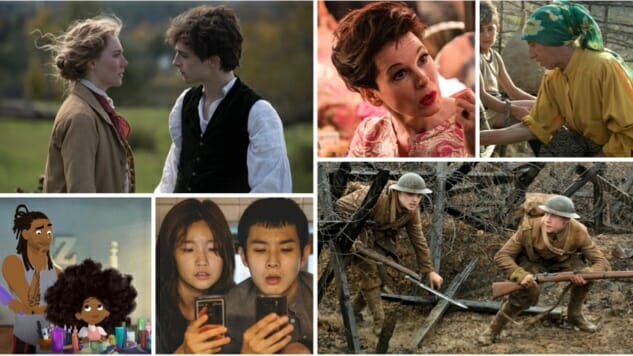
It should be harder.
Every year we do these Academy Award predictions, we include some discussion of the snubbed, the under-appreciated, the worthy performances that failed to register on Oscar’s radar. For any merit-recognizing ceremony, there will be misses, granted, but one would hope that as systemic disparities are highlighted and as embarrassing whiffs are made, the process would slowly get better, the blindspots smaller and fewer. Every year, it should be harder to find grievous blunders, to recognize obvious oversights and thinly veiled or outright slights.
Yet here we are. How can anyone who believes in iterative, accretive improvement explain this year’s slate of nominees, or more precisely, explain the complete absence of so many other worthy performances in front of and behind the camera? Is it some Hollywood version of moral licensing for that Moonlight win a few years back? How does Ruth E. Carter get overlooked for her work in My Name Is Dolemite? How does Lupita Nyong’o get overlooked for her “tour de Us” performance(s)? How does Greta Gerwig not get a Best Director nod for the near miracle of adaptation that is Little Women? (If that seems easy, check out the last four or five attempts at Robin Hood.)
Perhaps this year is just one of those final convulsions of defiance before longer-lasting change settles in—the sprinkling of Joker in almost every category certainly seems purposefully antagonistic. Then again, as so many people have so often pointed out, perhaps the consistent exclusion of opportunities for women directors, the failure to include significant works and recognize virtuoso performances from people of color, the fear of subtitles—perhaps that’s all not a bug, but a feature of industry the Academy Awards celebrates. (Ding, ding!)
Still, much like one watches the Super Bowl and hopes those helmets really are getting better, we can watch the Academy Awards and hope next year will be different. Hollywood is all about make-believe, after all.
Find out how to stream the nominees, and if you’re looking for more, check out some of our Oscars-related and -adjacent articles and all the writing done in the past year about Oscar-nominated films:
Florence Pugh’s Year of Performing Perfectly by Andy Crump
I See You Paint Houses: Through the Eyes of The Irishman by Chad Betz
Listen to Alexandre Desplat’s Little Women Score and You Will Know Nothing But Joy by Ellen Johnson
Being Alive in 2019: The Year Sondheim Saturated Pop Culture by Kyle Turner
Robert Eggers Is Ready to Do Worse Than The Lighthouse by Andy Crump
Our Little Corner of the World: A Report from the 2019 True/False Film Fest by Tim Grierson
Original Screenplay

Nominated:
Knives Out, Rian Johnson
Marriage Story, Noah Baumbach
1917, Sam Mendes and Krysty Wilson-Cairns
Once Upon a Time in Hollywood, Quentin Tarantino
Parasite, Bong Joon-ho, Han Jin-won
Who Will Win: Parasite, Bong Joon-ho, Han Jin-won
Looking forward to the rest of the ceremony, Parasite might not fare as well as anyone hoped, so this could end up the obligatory pick. (Think back to Jordan Peele’s win for Us.) The true contender here is Tarantino, but Parasite’s win over Once Upon a Time in Hollywood at the WGA awards is convincing enough to slide our bets toward Bong and Han. —Dom Sinacola
Who Should Win: Parasite
Adapted Screenplay
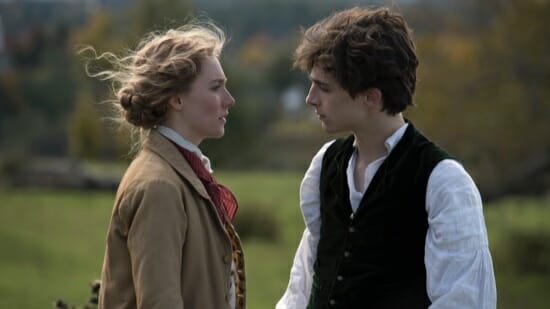
Nominated:
The Irishman, Steven Zaillian
Jojo Rabbit, Taika Waititi
Joker, Todd Phillips and Scott Silver
Little Women, Greta Gerwig
The Two Popes, Anthony McCarten
Who Will Win: Greta Gerwig, Little Women
Who Should Win: Greta Gerwig, Little Women
Snubbed in Translation: The Farewell, Lulu Wang
Writing a good screenplay is hard—to do it successfully in two different languages is worthy of endless praise. But that’s exactly what Lulu Wang did last year to zero acknowledgement from the Academy in The Farewell, a beautiful semi-autobiographical film adapted from her This American Life story about a young woman who travels to her native China to visit her dying grandmother.
It’s not just the technical aspects of translation that makes the screenplay worthy and the snub painful (though the translation process was an arduous one, with many translators including Wang’s own mother involved in getting the ideas from Wang’s head to the page). The Farewell is generous in its emotion, driven by celebrating the relationship between Billi (Awkwafina) and her Nai Nai (Zhao Shuzhen) in small gestures and familiar dialogue, whether on the phone thousands of miles apart or in person sharing a meal together. It intimately showcases familial tensions that appear when people choose different paths in life, and it takes time to process the internal struggle that comes with impending loss. Wang’s precise screenplay is the driving factor behind the film’s success—it’s a shame The Academy didn’t recognize this. —Radhika Menon
Actress in a Supporting Role
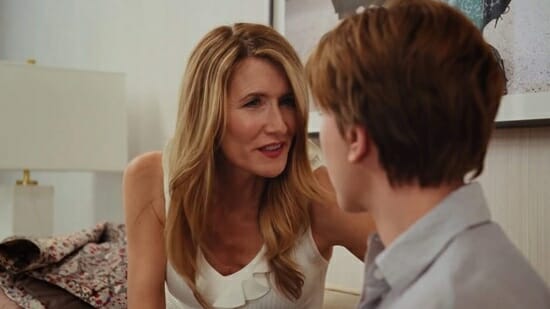
Nominated:
Kathy Bates, Richard Jewell
Laura Dern, Marriage Story
Scarlett Johansson, Jojo Rabbit
Florence Pugh, Little Women
Margot Robbie, Bombshell
Who Will Win: Laura Dern
Who Should Win: Florence Pugh
Whether she enjoys any Oscar attention for being the umpteenth actress to play Amy March or not, 2019 has been Pugh’s year, a year of performances each good on their own but stellar when taken together. She’s an up-and-comer no more. As Amy, she stretches out her legs more so than the character does in the pages of Louis May Alcott’s novel: Where she’s typically thought of as a brat, vain and flighty, here she’s just brat-adjacent. Sure, she burns the novel of her sister Jo (Saoirse Ronan) out of spite. Sure, she draws caricatures of her teacher for her classmates to giggle over. But Amy has dreams and aspirations. She wants to travel across Europe, live in Paris, and blossom into the greatest painter the world has ever known. Hard as it may be to know oneself when surrounded by three siblings, Amy has a firm grasp on who she wants to be, and as the movie leads her—and its viewers—toward a full realization of her personhood, it inevitably calls her back home to deal with death in the family. —Andy Crump
Costume Design
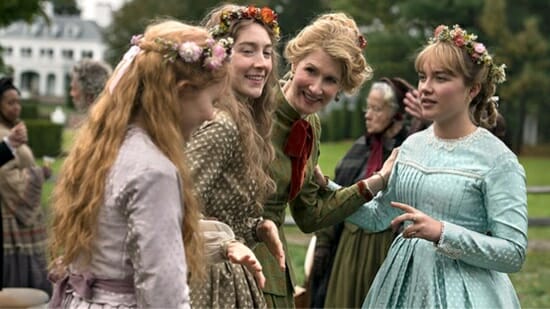
Nominated:
The Irishman, Sandy Powell and Christopher Peterson
Jojo Rabbit, Mayes C. Rubeo
Joker, Mark Bridges
Little Women, Jacqueline Durran
Once Upon a Time in Hollywood, Arianne Phillips
Who Will Win: Little Women, Jacqueline Durran
Who Should Win: Little Women, Jacqueline Durran
Production Design
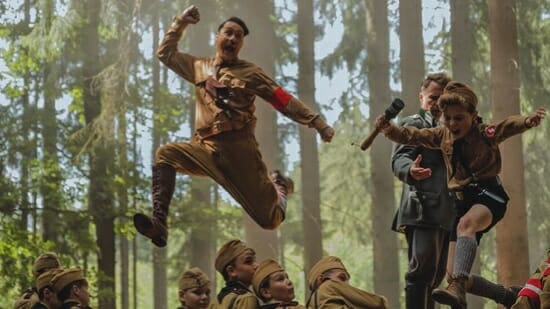
Nominated:
The Irishman, Bob Shaw (Production Design ), Regina Graves (Set Decoration)
Jojo Rabbit, Ra Vincent (Production Design), Nora Sopková (Set Decoration)
1917, Dennis Gassner (Production Design), Lee Sandales (Set Decoration)
Once Upon a Time in Hollywood, Barbara Ling (Production Design), Nancy Haigh (Set Decoration)
Parasite, Lee Ha-jun (Production Design), Cho Won-woo (Set Decoration)
Who Will Win: Once Upon a Time in Hollywood
Who Should Win: Once Upon a Time in Hollywood
Though both Parasite and Once Upon a Time in Hollywood are exquisitely defined by place—by the ways in which identities, power and even history itself can be so transformed by the rooms and buildings and public geography we inhabit—the old Hollywood Barbara Ling and Nancy Haigh are able to create is undeniably something to behold. Anchoring Tarantino’s rabid knowledge of film obsession to a recognizably booming point in the city’s growth, their production design allows Once Upon a Time in Hollywood to straddle the stuff of fantasy and Hollywood’s bitterer reality, ultimately celebrating just how close moviemaking can get an artist (and audience) to seeing their dreams manifest on screen. The Oscars love that shit; in this case, so do we. —Dom Sinacola
Makeup and Hairstyling
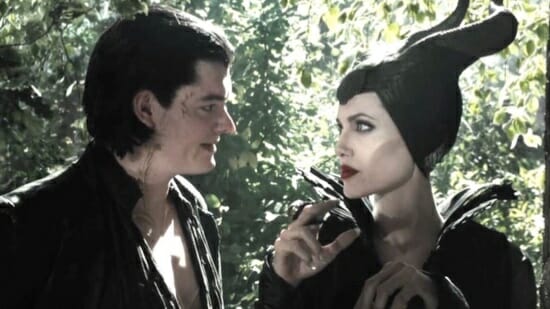
Nominated:
Bombshell, Kazu Hiro, Anne Morgan and Vivian Baker
Joker, Nicki Ledermann and Kay Georgiou
Judy, Jeremy Woodhead
Maleficent: Mistress of Evil, Paul Gooch, Arjen Tuiten and David White
1917, Naomi Donne, Tristan Versluis and Rebecca Cole
Who Will Win: Bombshell
Who Should Win: Maleficent: Mistress of Evil
Listen, this film was painful, the script a veritable master class in how not to develop characters and present a story, but the pain of watching it was made all the more unpleasant by the knowledge that in terms of look and design, there was so much being done well. In any other year, we’d be all for a world where the phrase “the Oscar-winning Maleficent: Mistress of Evil” could never be uttered, but this year? Set against such mundane fare as “Fox Blond,” “Downton Abbey retro,” “Mad Men classic,” and “Taxi Driver Grainy,” I don’t mind one of the only great things about Disney’s hack-and-ack of a sequel being recognized. —Michael Burgin
Cinematography

Nominated:
The Lighthouse, Jarin Blaschke
The Irishman, Rodrigo Prieto
Joker, Lawrence Sher
1917, Roger Deakins
Once Upon a Time in Hollywood, Robert Richardson
Who Will Win: Roger Deakins
Who Should Win: Roger Deakins
Film Editing

Nominated:
The Irishman, Thelma Schoonmaker
Ford v Ferrari, Michael McCusker and Andrew Buckland
Jojo Rabbit, Tom Eagles
Joker, Jeff Groth
Parasite, Yang Jin-mo
Who Will Win: The Irishman, Thelma Schoonmaker
Who Should Win: The Irishman, Thelma Schoonmaker
This extrapolation of the “unreliable narrator” device is like a filter over every frame of the I Heard You Paint Houses film that is not Frank (Robert De Niro) in his nursing home, telling his story. The young are never truly young. Subtitles cut in whenever a lively new criminal is introduced, letting us know exactly how ingloriously they died. Thelma Schoonmaker’s editing carries us with great precision back and forth through time, as Sheeran’s tangled narration tries to find its footing. There is a moment where Sheeran starts to repeat the best route to Detroit, and suddenly we’re back in the same context that started his reminiscence, back on the road with Frank and Russ (Joe Pesci) and their wives on their way to a wedding that marks the time period for the film’s climax. It is a telling moment: This is not a true crime story. It is not some mafioso epic. It is an existential examination and reckoning. Time and death and Sheeran’s own narcissism and decay close in on the entire film, like a shroud. —Chad Betz
Toward the end of The Irishman, as Frank attempts to console Jo Hoffa (Welker White) over the phone but is unable to say much of anything, the film jump-cuts to the end of the interaction, Frank desperately trying to hang up. It’s barely perceivable, intuitively jarring, Schoonmaker’s presence a strange but deserving touch that tips the moment’s tension beautifully into sadness. If this is how Frank remembers that conversation, he has excised the hardest, most compromising parts, consequence left on the cutting room floor. —Dom Sinacola
Sound Editing
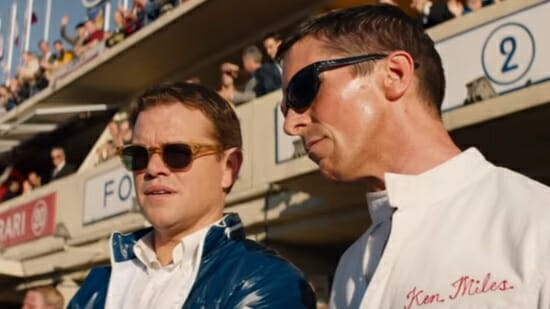
Nominated:
Ford v Ferrari, Donald Sylvester
Joker, Alan Robert Murray
1917, Oliver Tarney and Rachael Tate
Once Upon a Time in Hollywood, Wylie Stateman
Star Wars: The Rise of Skywalker, Matthew Wood and David Acord
Who Will Win: Ford v Ferrari, Donald Sylvester
Who Should Win: Ford v Ferrari, Donald Sylvester
My step-dad (who lives in Detroit) is obsessed with cars and almost always has nothing to say about any of the movies I see, but he was tracking this movie since its inception, like talking about it when he visited back in August 2018, which between then and now is practically a lifetime in a step-dad’s attention span for stuff like this. It would be an understatement to say that he was excited for Ford v Ferrari—and if there’s one thing I know that would make or break this film for him, it’s the reassurance that all the cars in the movie look and sound like they “should.” Because this movie was made for people like my step-dad, I must conclude that all the cars in this movie really do sound like they should, an impressive feat because anything less would be unacceptable. —Dom Sinacola
Sound Mixing
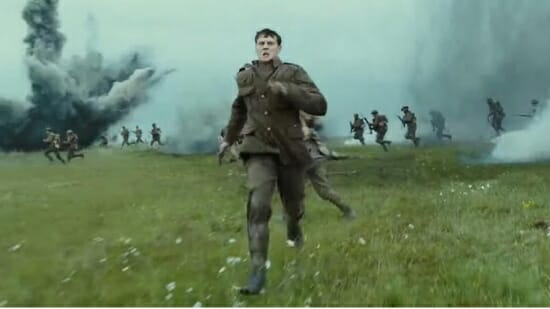
Nominated:
Ad Astra, Gary Rydstrom, Tom Johnson and Mark Ulano
Ford v Ferrari, Paul Massey, David Giammarco and Steven A. Morrow
Joker, Tom Ozanich, Dean Zupancic and Tod Maitland
1917, Mark Taylor and Stuart Wilson
Once Upon a Time in Hollywood, Michael Minkler, Christian P. Minkler and Mark Ulano
Who Will Win: 1917, Mark Taylor and Stuart Wilson
Always bet on the war movie. Though, in this case, 1917 may so clearly trounce every other Best Picture nominee that the Sound categories may go to Ford v Ferrari, which is as much a testament to authenticity as it is to the filmmaking. But probably not. Folks just love this 1917movie, don’t they? —Dom Sinacola
Who Should Win: Ad Astra, Gary Rydstrom, Tom Johnson and Mark Ulano
A film as interior as Ad Astra, in which the rigorously confined worlds within astronaut Roy McBride’s head contrast endlessly with the splayed out solar system through which he traverses, thrives on that dynamic, conveyed almost subconsciously by the film’s magnificent mixing. We’re always pulled closer to our protagonist, his mind filled with sad reminders of lives he could have led with his father but never did, even as he pushes farther and farther from Earth. Plus, as it was otherwise totally ignored by the Academy, Ad Astra deserves something for wrangling all that majesty. —Dom Sinacola
Visual Effects

Nominated:
Avengers: Endgame, Dan DeLeeuw, Russell Earl, Matt Aitken and Dan Sudick
The Irishman, Pablo Helman, Leandro Estebecorena, Nelson Sepulveda-Fauser and Stephane Grabli
The Lion King, Robert Legato, Adam Valdez, Andrew R. Jones and Elliot Newman
1917, Guillaume Rocheron, Greg Butler and Dominic Tuohy
Star Wars: The Rise of Skywalker, Roger Guyett, Neal Scanlan, Patrick Tubach and Dominic Tuohy
Who Will Win: Avengers: Endgame, Dan DeLeeuw, Russell Earl, Matt Aitken and Dan Sudick
Who Should Win: Avengers: Endgame, Dan DeLeeuw, Russell Earl, Matt Aitken and Dan Sudick
Regardless of where you stand on the “Is this … cinema?” debate when it comes to the MCU, the sheer range of visual effects on display in this modest little three-hour-long, $400 million movie that starred everybody and made $2.8 billion or so should be the obvious choice for the statuette. Avengers: Endgame involves about every established trick and every developing technology in the book. —Michael Burgin
Short Film (Animated)
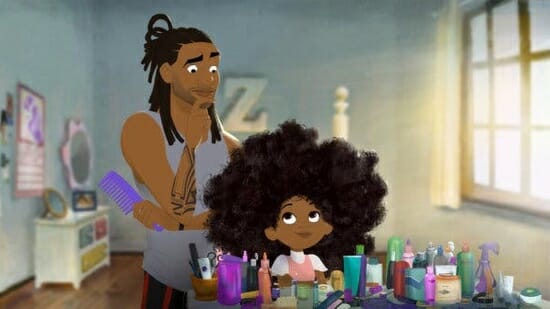
Nominated:
Dcera (Daughter), Daria Kashcheeva
Hair Love, Matthew A. Cherry and Karen Rupert Toliver
Kitbull, Rosana Sullivan and Kathryn Hendrickson
Memorable, Bruno Collet and Jean-François Le Corre
Sister, Siqi Song
Who Will Win: Hair Love
Animated Feature Film

Nominated:
How to Train Your Dragon: The Hidden World, Dean DeBlois, Bradford Lewis and Bonnie Arnold
I Lost My Body, Jérémy Clapin and Marc du Pontavice
Klaus, Sergio Pablos, Jinko Gotoh and Marisa Román
Missing Link, Chris Butler, Arianne Sutner and Travis Knight
Toy Story 4, Josh Cooley, Mark Nielsen and Jonas Rivera
Who Will Win: Toy Story 4
Who Should Win: I Lost My Body
While we’re on board, at least passively, for however many sequels Pixar wants to give Toy Story, patient for however long another one takes, I Lost My Body is a singular animated film, increasingly of the kind that, frankly, don’t get made anymore. Partly because hand-drawn features made by small studios are rarer than ever, but mostly because it’s a defiantly adult animated film, wreathed in oblique storytelling and steeped in grief. Ostensibly about an anthropomorphic hand climbing and skittering its way across the city to find the person to whom it was once attached—the story of its severing slowly coming to light—the beauty of director Jérémy Clapin’s images, often limned in filth and decay, is in how revelatory they can be when tied so irrevocably to the perspective of a small hand navigating both its nascent life in the treacherous urban underground and the traumatic memories of its host body’s past. I Lost My Body is an unassuming, quietly heartbreaking achievement, one the Academy needs to prioritize now more than ever over expectedly competent big studio fare. —Dom Sinacola
Actor in a Supporting Role
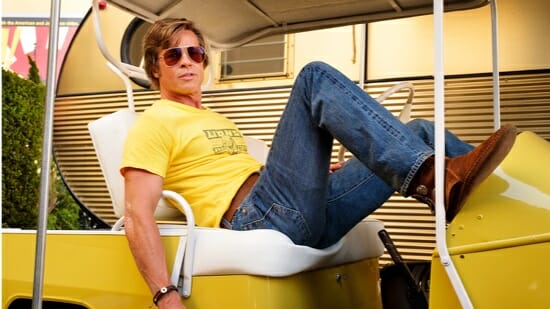
Nominated:
Tom Hanks, A Beautiful Day in the Neighborhood
Anthony Hopkins, The Two Popes
Al Pacino, The Irishman
Joe Pesci, The Irishman
Brad Pitt, Once Upon a Time in Hollywood
Who Will Win: Brad Pitt
Who Should Win: Joe Pesci
Documentary (Short Subject)
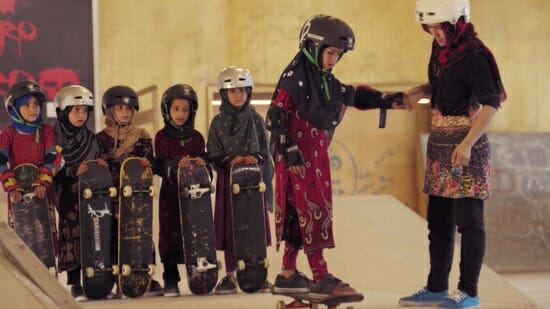
Nominated:
In the Absence, Yi Seung-Jun and Gary Byung-Seok Kam
Learning to Skateboard in a Warzone (If You’re a Girl), Carol Dysinger and Elena Andreicheva
Life Overtakes MeJohn Haptas and Kristine Samuelson
St. Louis Superman, Smriti Mundhra and Sami Khan
Walk Run Cha-Cha, Laura Nix and Colette Sandstedt
Who Will Win: Learning to Skateboard in a Warzone (If You’re a Girl)
Documentary (Feature)
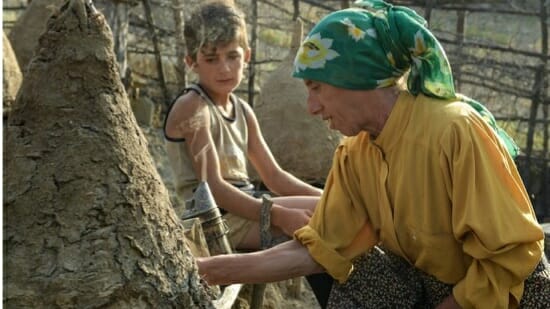
Nominated:
American Factory, Steven Bognar, Julia Reichert and Jeff Reichert
The Cave, Feras Fayyad, Kirstine Barfod and Sigrid Dyekjær
The Edge of Democracy, Petra Costa, Joanna Natasegara, Shane Boris and Tiago Pavan
For Sama, Waad al-Kateab and Edward Watts
Honeyland, Ljubo Stefanov, Tamara Kotevska and Atanas Georgiev
Who Will Win: American Factory
Who Should Win: Honeyland
With great warmth and reverence, Honeyland mourns a fading way of life—a way through which we’re introduced to Hatidzhe, whose whole life resonates, on some primordial level, with beekeeping. She climbs steep heights and navigates narrow ledges of rural Macedonia until she brings us to a honeybee colony she’s discovered deep in the face of a mountainside. She takes a few combs, carefully wraps them for the slow journey home. She lives without electricity in a village all but abandoned were it not for her bedridden mother, whose head’s half-wrapped with a scarf to hide a wound or large sore, it’s not clear, whose only company when Hatidzhe walks to town to sell jars of honey are the flies she attracts. Hatidzhe tends to her bees—only taking “half” the honey, leaving the rest for the burgeoning colony—in the ruins of what might have once been a thriving town, and her mother sleeps, occasionally rising to eat honey, or a banana, just a little. This is how their days pass, until a big family of neighbors rolls up with a camper, some cattle and a desperate ambition to make something out of all that land.
Though she may be too gregarious and giving for her own good, Hatidzhe welcomes the company, even if the family’s patriarch, Hussein, can be an abusive blowhard. Even if he gets a touch too curious about Hatidzhe’s talent with bees, squeezing her for secrets. Even when he starts his own beekeeping operation, but has nothing of Hatidzhe’s respect or patience or preternatural connection to the insects. Even when his hives ruin hers. One can easily catch metaphors about mass-market industrialization, or conjure up less material parables about humans’ insatiable urge to annihilate everything in their paths. Honeyland resists the tendency to sprawl out. Instead, Hatidzhe must accept what’s happened and move on. Of all the beautiful, harrowing documentaries nominated, this one most captures the bittersweetness of that. We know exactly how that feels. —Dom Sinacola
Short Film (Live Action)
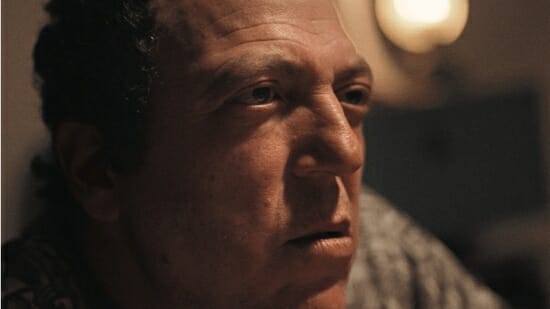
Nominated:
Brotherhood, Meryam Joobeur and Maria Gracia Turgeon
Nefta Football Club, Yves Piat and Damien Megherbi
The Neighbors’ Window, Marshall Curry
Saria, Bryan Buckley and Matt Lefebvre
A Sister, Delphine Girard
Who Will Win: Brotherhood
Who Should Win: Brotherhood
Foreign Language Film
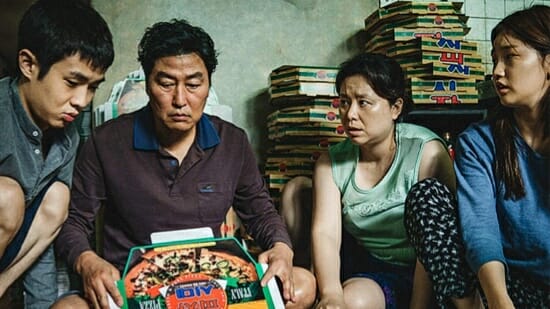
Nominated:
Corpus Christi (Poland)
Honeyland (North Macedonia)
Les Misérables (France)
Pain and Glory (Spain)
Parasite (South Korea)
Who Will Win: Parasite
The Academy will convince themselves that this is sufficient for the multi-nominee…
Who Should Win: Parasite
…regardless, it’s still the best movie of the year.
Music (Original Song)

Nominated:
“I Can’t Let You Throw Yourself Away#8221; from Toy Story 4, Randy Newman (music and lyrics)
“(I’m Gonna) Love Me Again” from Rocketman by Elton John (music) and Bernie Taupin (lyrics)
“I’m Standing With You” from Breakthrough by Diane Warren (music and lyrics)
“Into The Unknown” from Frozen II by Kristen Anderson-Lopez and Robert Lopez (music and lyrics)
“Stand Up” from Harriet by Joshuah Brian Campbell and Cynthia Erivo (music and lyrics)
Who Will Win: “(I’m Gonna) Love Me Again” by Elton John (music) and Bernie Taupin (lyrics)
Who Should Win: “I Can’t Let You Throw Yourself Away#8221; from Toy Story 4, Randy Newman (music and lyrics)
Without sparing another minute for the schmaltzy nonsense of one more Dianne Warren Catholic anthem, the most obvious winner for Original Song rewards Elton John’s longevity, patting him on the back for delivering a dependable rehashing of everything people seem to like about him, and about Rocketman, a movie some people seem to like. It’s fine. More exciting is Cynthia Erivo’s “Stand Up,” which has slightly too many ideas to cohere into something more stirring, and “Into the Unknown,” which is more stirring but basically has one idea. The dark horse here is an old white man with two Academy Awards, nominated in two separate sections this year, for two separate movies. One could easily argue he’s been celebrated enough already, but in a year in which the Academy seems to want to prove they’ve learned nothing from the past, it’s nice to point to a song from Randy Newman that feels uniquely different from everything we’ve celebrated about his prestigious talent before. —Dom Sinacola
Music (Original Score)

Nominated:
Joker, Hildur Guðnadóttir
Little Women, Alexandre Desplat
Marriage Story, Randy Newman
1917, Thomas Newman
Star Wars: The Rise of Skywalker, John Williams
Who Will Win: Joker, Hildur Guðnadóttir
Who Should Win: Little Women, Alexandre Desplat
The music in this film needed to have a certain movement—Little Women>’s protagonist Jo (Saoirse Ronan) is rarely still—and Alexandre Desplat’s arrangements are positively kinetic. “The Book” is a daring organization of orchestral strings and rousing woodwinds that often leaves me with the urge to skip rope. “Amy”’s theme is suspenseful and devilish just like her (Florence Pugh). “Snow in the Garden” is just decadent enough. The music that plays when Jo writes or rages or whisks her way down a bustling New York street has as much personality as Ronan’s spirited interpretation of the second-eldest March sister. But the crown jewel in this collection is “Plumfield,” one of the film’s prevailing musical themes. It’s a delicate and melancholy medley that seems to signal some forthcoming tragedy, yet it’s so consistently smooth and spritely you can’t help but feel a little hopeful when you hear it.
Desplat told Billboard that director Greta Gerwig handed him a script and suggested the music be “a mix of Mozart meeting Bowie.” I’m not sure I hear much of the Bowie influence throughout the movie, but some scenes—like the one where Jo and Laurie (Timothee Chalamet) stampede a veranda while a ballroom dance carries on inside—have an artfulness and poppiness to them that recall at the least the mood of some of Bowie’s masterful visuals and records. More than anything, this is music that just fits with the film so damn well, heavy when it should be heavy and light when it should be light. Little Women is not a musical, but it is lyrical in tone. Much like in Gerwig’s 2017 film Lady Bird, this movie has a very obvious rhythm to it, and so much of that movement is owed to Desplat’s genius music. —Ellen Johnson
Directing

Nominated
Martin Scorsese, The Irishman
Todd Phillips, Joker
Sam Mendes, 1917
Quentin Tarantino, Once Upon a Time in Hollywood
Bong Joon-ho, Parasite
Who Will Win: Sam Mendes
Who Should Win: Sam Mendes
A Not-So-Little Snub: Greta Gerwig, Little Women
Greta Gerwig is the only woman who received an Academy Award for Best Direction nomination through the entirety of the 2010s. This is a baffling enough statistic without acknowledging the leaps and bounds by which she grew as a filmmaker between 2017 and now. Whether one prefers Lady Bird to Little Women or the other way around, Gerwig’s gift for finding warmth and humanism in her storytelling is at play in the latter, the umpteenth adaptation of Louisa May Alcott’s essential text.
Gerwig deserves better. The work she’s done on Little Women—reinterpreting the novel’s themes, rearranging its structural components, putting together one of the sterling ensembles of 2019, finding paths to travel back and forth from the movie’s past and present—is impressive. Collectively, the film’s elements present gentle power, firm and graceful, its timelines traced in hues of gold and blue and its humor as key to the experience as its heartbreaks. Gerwig has a long career ahead of her, and one day she’s sure to win high honors for her direction. But Little Women will forever stand out among even the Academy’s “rich” history of glaring errors. —Andy Crump
Actress in a Leading Role

Nominated:
Cynthia Erivo, Harriet
Scarlett Johansson, Marriage Story
Saoirse Ronan, Little Women
Charlize Theron, Bombshell
Renée Zellweger, Judy
Who Will Win: Renée Zellweger
Who Should Win: Saoirse Ronan
A Snub Untethered: Lupita Nyong’o, Us
As a general rule, “the most acting” does not translate to “the best acting,” but Lupita Nyong’o did the most acting and the best acting in Jordan Peele’s Us. She did so much acting in Us that she winds up on screen with herself repeatedly, an existential duel between Good Lupita and Bad Lupita.
As Adelaide—mother of two, wife to career goofball Gabe (Winston Duke) and erstwhile ballet dancer—as Red, Adelaide’s clone and chief of a subterranean tribe of doppelgängers called the Tethered, Nyong’o plays two separate characters, but as the characters are twins of a kind, Nyong’o is tasked with both differentiating them and finding common ground. This is no easy feat, but through guttural growls, tensed musculature and the expressions of her eyes, Nyong’o finds the connection while distinguishing Red and Adelaide as their own people. The tennis match Nyong’o plays with our empathy demonstrates her immensity of spirit and reminds anyone who needs reminding (like, say, some percentage of the Academy’s voters) that her talent’s ceiling is absurdly high. —Andy Crump
Her Snub: Elisabeth Moss, Her Smell
This year featured plenty of snubs that were legitimately perplexing. Elisabeth Moss’s snub, on the other hand, is eminently understandable—I sincerely doubt many voters watched Her Smell at all. If you think the title is unpleasant, just wait until you meet Moss’s character—a sneering, haughty, self-absorbed, acting-out punk rocker. By the time she earns a little bit (and maybe a lot) of our sympathy, many viewers will have already stopped watching. But Moss continues to prove incapable of anything but a fascinating performance, and this may be her best. Even in the character’s nastier moments, you can’t take your eyes off of her. It’s OK Academy, you can’t ignore her forever. She’ll be back, again and again. —Michael Dunaway
Actor in a Leading Role
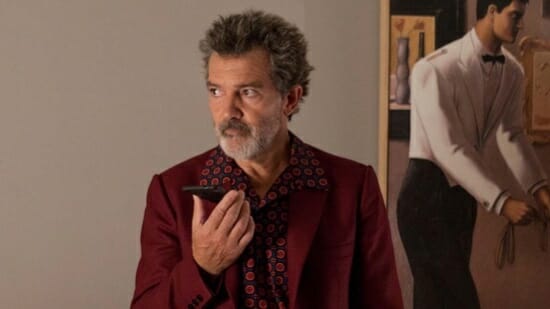
Nominated:
Antonio Banderas, Pain and Glory
Leonardo DiCaprio, Once Upon a Time in Hollywood
Adam Driver, Marriage Story
Joaquin Phoenix, Joker
Jonathan Pryce, The Two Popes
Who Will Win: Joaquin Phoenix
This is the best of all bets, so guaranteed that all we can hope for is a good speech.
Who Should Win: Joaquin Phoenix
This Is How I Snub: Adam Sandler, Uncut Gems
As in Punch Drunk Love—alluded to by a bright blue suit Howard wears on an especially promising morning—here Adam Sandler is a calm center to the ceaseless churn of reality around him, but still buzzing with constant, dreadful energy just beneath that equally constant smile. Sandler seems to get the bleak hilarity of Howard, how the man weaponizes despair even though he fundamentally believes the fates are on his side. Maybe every character Adam Sandler plays does the same. Just before a game, Howard reveals to Kevin Garnett his grand gamble for a big payday, explaining that Garnett gets it, right? That guys like them are keyed into something greater, working on a higher wavelength than most—that this is how they win. He may be onto something, or he may be pulling everything out of his ass—regardless, Howard gets the news from his doctor that his colon’s clear. And if you remember the 2012 Eastern Conference semifinals, Garnett came out of Game 7 triumphant. Sandler’s eyes twinkle with adrenaline. He isn’t funny, but absolutely everything he does is worthy of laughter. It can get overwhelming. Howard is a nauseating man, but we want him to win. He tells us this is how he does it. We’re convinced. His performance is a gift. We’ve always known Sandler’s had it in him; when we first emerge from his butthole at the beginning of Uncut Gems, that may be exactly what we had in mind. —Dom Sinacola
As High as a Snub Gets: Matthew McConaughey, The Beach Bum
Witness Matthew McConaughey, transcending. Revel in it, because this has got to be as high as he goes. As Moondog, the opposite, arch nemesis perhaps, to the Matthew McConaughey of the Lincoln commercials—on TV the interstitial, nonchalant pool shark and connoisseur of fine leather everything, a man to whom one whispers courteously, in reverence between network shows—to the Matthew McConaughey who won an Oscar, Matthew McConaughey here realizes the full flat circle of his essence. The actor bears multitudes, and they all converge upon the befuddled Moondog, consummate inhuman and titular hobo of the southern sands of these United States. Whether he’s protecting himself from any serious human connection or from the crass hellscape of capitalistic society—whether he’s deeply grieving a tragedy that occurs halfway through The Beach Bum, Harmony Korine’s masterpiece of feeling good in the face of feeling the worst, or avoiding all feeling completely—he’s still a bad dad. Or he’s an artist. Or a saint. Or he’s from a different dimension, as his wife (Isla Fisher) explains to their daughter, as she most likely always has, against a breathtaking vista followed not long after by a heartbreaking sunset, both photographed by Benoît Debie, in Miami of all places, all magnificent and hollow, the film a hagiography for the End of History. Alright alright alright, amen. —Dom Sinacola
Best Picture

Nominated:
Ford v Ferrari
The Irishman
Jojo Rabbit
Joker
Little Women
Marriage Story
1917
Once Upon a Time in Hollywood
Parasite
Who Will Win: 1917
Who Should Win: Parasite
As we said before, and we’ll say again, Parasite was the best movie of the year.
An Open Snub:: A Hidden Life
Given its subject matter—the loosely adapted story of an Austrian farmer who refused to bend the knee to Hitler, and in return received martyrdom—it’s far too easy to read A Hidden Life as “important” in Trump’s America. It’s so much deeper than that. Through its relentlessly single-minded focus on its protagonist and its relentlessly slow pace, director Terence Malick asks us to consider, more universally, how far we are willing to go for the sake of what we believe to be morally right. Like the best dramatic questions, it’s more complicated than you realize. The most intelligent and sensitive exploration, then, of one of the most important questions in human existence. Add to the résumé that it’s the most beautifully shot film of the year, and features two of the most quietly masterful performances, and even the Academy’s infamous blind spot for Malick can’t fully explain why this masterpiece isn’t more celebrated. A Hidden Life is the most important film of the year, as well as the best, and its exclusion from the list of nominees is more an indictment of the Academy than of the film itself. —Michael Dunaway







































